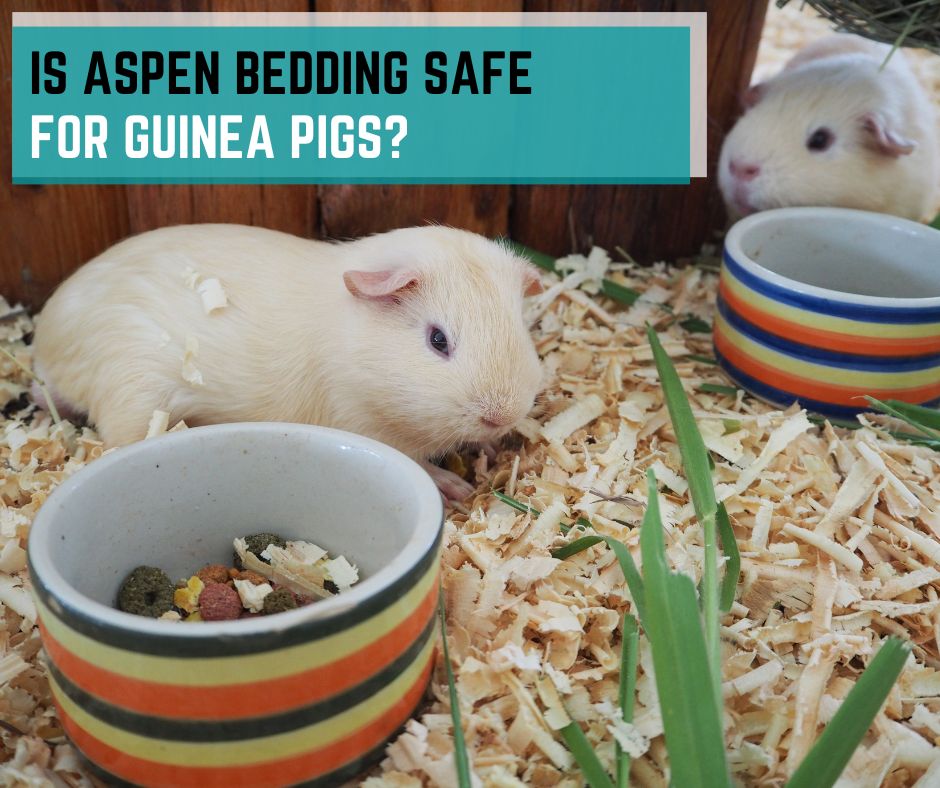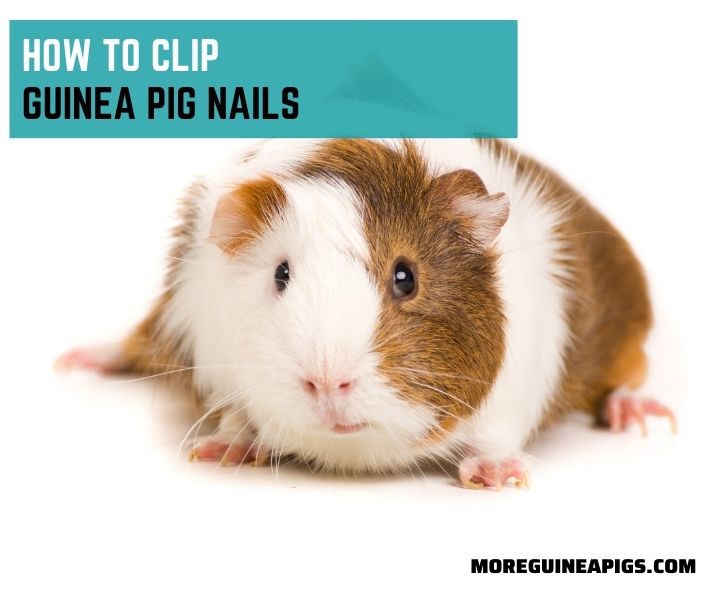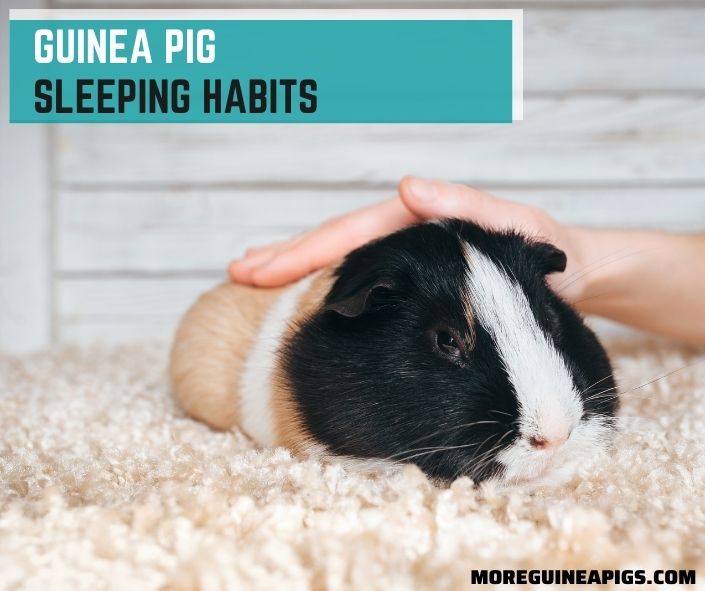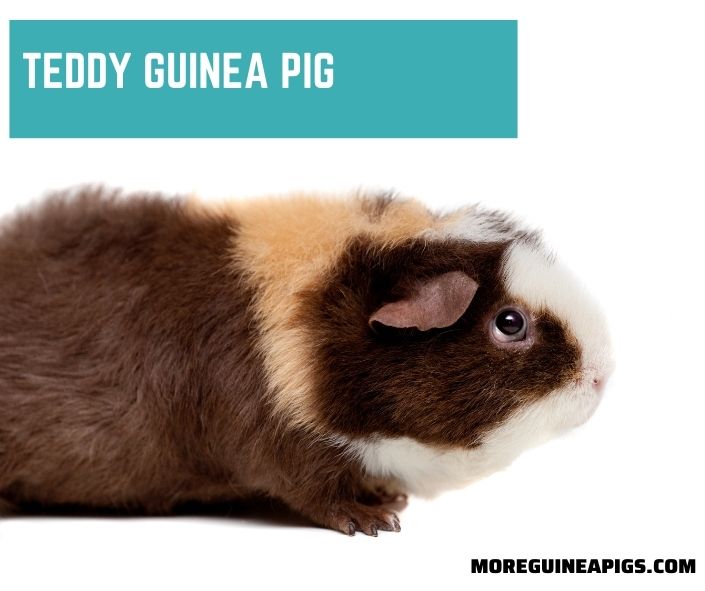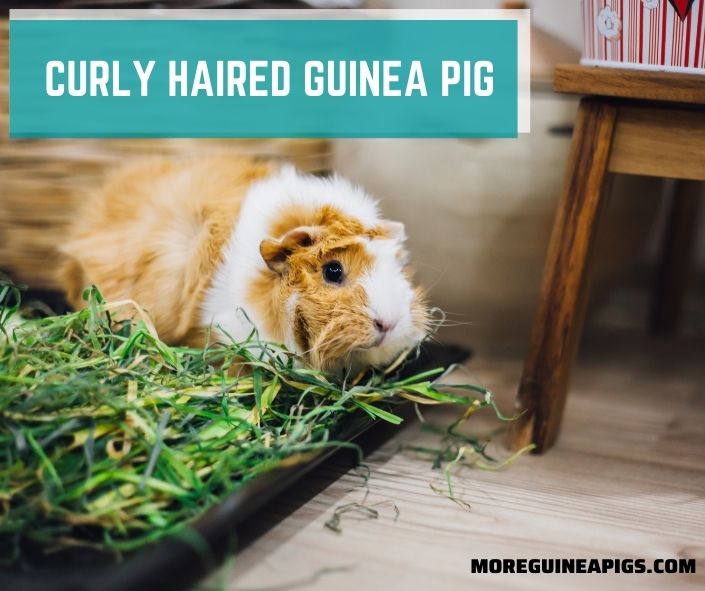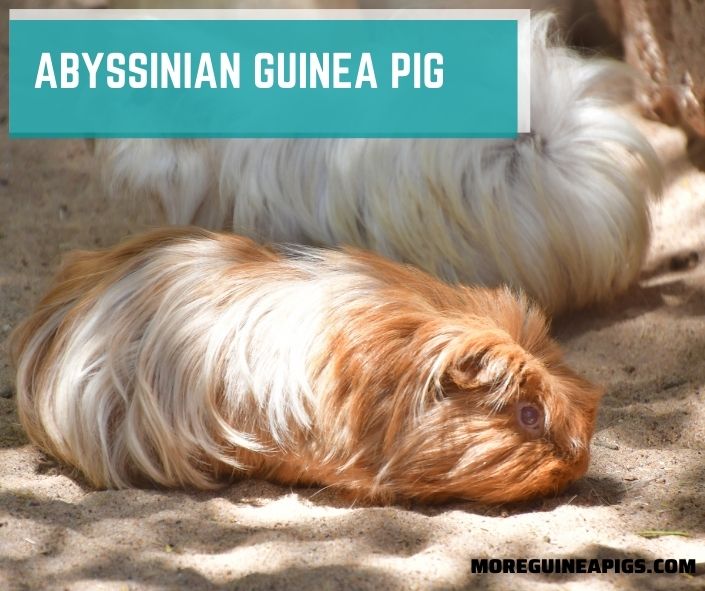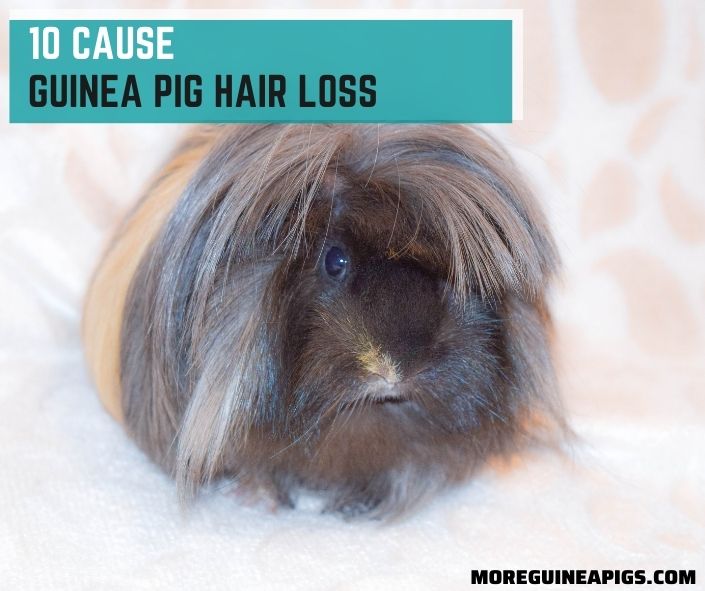Is Aspen Bedding Safe for Guinea Pigs?
There are many different types of small animal beddings and litter available in pet shops today, but not all of them are safe.
For instance, cedar and pine wood shavings are fragrant beddings that conceal odors from guinea pig urine.
They contain phenols/aromatic oils that expose guinea pigs to dangers of upper respiratory system irritation and liver damage.
Many people, cognizant of the dangers of cedar and pine wood shavings, alternatively choose aspen bedding. But is that a sound decision?
Let’s give focus to this renowned bedding and see if it’s a thing for your guinea pig—everything you’ll find it in the article.
Is Aspen Bedding Safe for Guinea Pigs?
Yes, aspen bedding is safe for guinea pigs. It is free from any aromatic oils (phenols) and makes an ideal material for absorbing urine/liquid waste. Aspen bedding is also very economical and effective in odor control.
Bear in mind that the quality of aspen bedding varies depending on the brand/batch. Some brands are dusty and not good for guinea pigs.
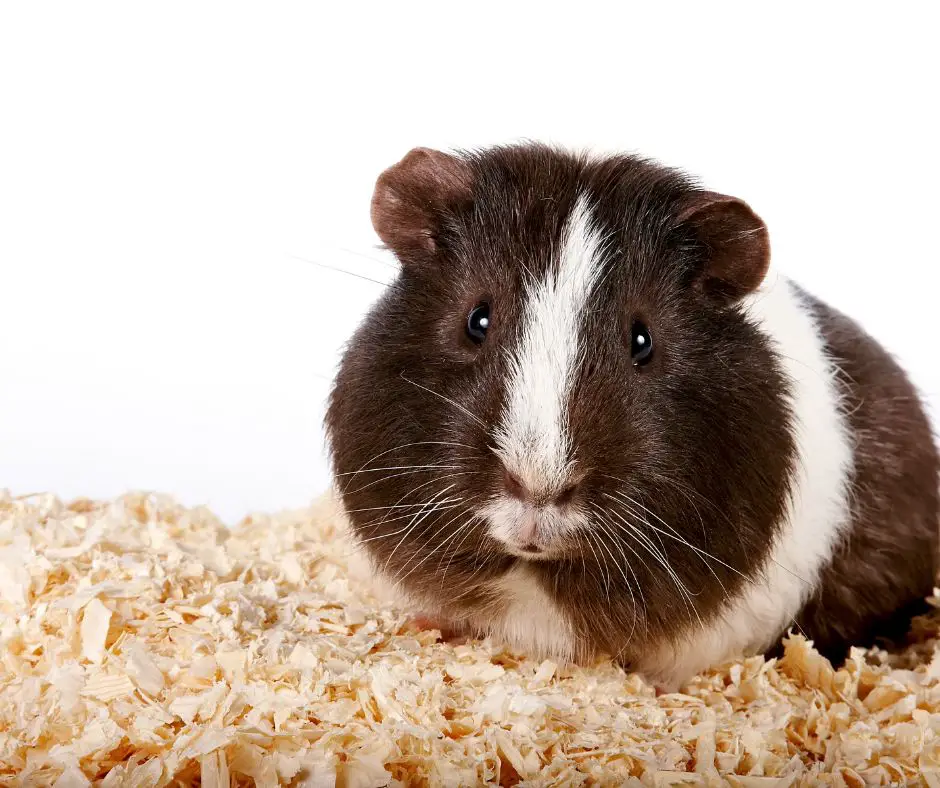
Pros and Cons of Aspen Bedding
Aspen beddings are good alternatives for cedar, pinewood shaving, and other beddings since they are not aromatic. They provide a comfortable bed for guinea pigs to rest in and are ideal for absorbing waste and odors.
Aspen bedding lacks chemical compounds present in cedar and pine wood shavings that threaten a guinea pig’s health. However, it also has its light and dark side; check them on the table underneath.
| Pros of Aspen Bedding | Cons of Aspen Bedding |
| – Inexpensive – Kiln-dried – Virtually dust and scent-free – Hypoallergenic (ideal if your pet has respiratory sensitivities) – 100%-all Natural – Readily available in most pet stores – Absorbs urine and liquid waste extremely well (can absorb up to four times its weight in moisture) – 100% recyclable and compostable High-quality aspen doesn’t harbor mite Not quite as soft/fluffy as pine, but it’s ideal for guinea pigs | – Some brands are dusty and make guinea pigs sneeze – The shavings tend to cling to fabrics and are dragged around the house. – Shavings vary in thickness, hardness, and length. – Not soft enough for hairless piggies, those with sensitive skins or open wound – More expensive than pine shavings It’s disposable; thus, you need to keep buying it. |
Tips when Using Aspen Bedding for Guinea Pigs
If your guinea pig is hairless, has sensitive skin or an open wound, or has had recent surgery, aspen bedding is not an acceptable material for your piggy to walk or sleep on.
And that’s because aspen is not soft enough and will irritate your piggy’s skin. Your little friend needs a comfortable and secure place; you can consider using fleece bedding.
Sometimes, aspen may not offer the softness you’re looking for, but you can improve them by combining them with other substrates. For instance, adding some extra bedding hay to the aspen adds extra softness.
Be careful about the aspen bedding you’re buying since quality is vital here. High-quality aspen is 100% natural with no additives, and it should be kiln-dried to remove dust.
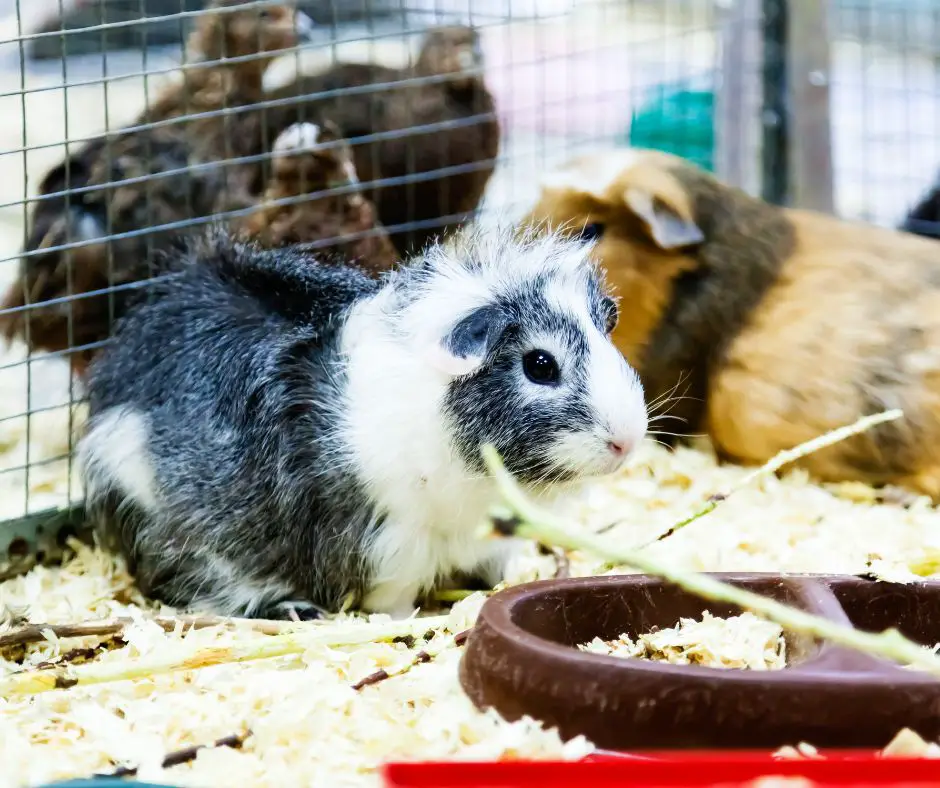
How often Should You Change Aspen Bedding for Guinea Pigs?
It is extremely important to keep your little friend’s house always clean. It requires you to spot clean the cage every day and remove any wet beddings.
Guinea pigs love to poo/pee in dark areas and hides; these are the most likely areas to be wet. Moreover, ensure the cage always has enough bedding to absorb the urine and avoid your piggy’s coat from getting damp.
That tells you to add some beddings in the wet areas and places with thin layers after you spot clean.
Ultimately, perform a deep cleaning of the cage after 5-6 days. It involves entirely removing the beddings, cleaning the cage, and refilling it with fresh, clean aspen beddings.
Also read: How To Clean a Guinea Pig Cage?
Small Pet Select Aspen Bedding
Which is Better: Pine or Aspen Bedding for Guinea Pigs
It’s worth bearing in mind that any bedding option has its pros and cons. Your preference bedding may be different from another person’s. But we all want what is quality and suitable for our beloved pets.
Aspen bedding is economical and lacks dangerous, volatile oil that harms a guinea pig’s respiratory and liver system. Unfortunately, this bedding material is less absorbent than pine.
Pinewood shavings have aromatic oil that is hazardous to guinea pigs. Although, they are cheaper than aspen and last well between cleans.
Both pine and aspen beddings can be dusty, although the kiln-dried or dust extracted brands are somewhat non-dusty. Guinea pig beddings should be completely dust-free and non-toxic because of their health.
Aspen beddings are better than pine wood shavings because they don’t have dangerous, volatile oils.
What Bedding Is Best for Guinea Pigs?
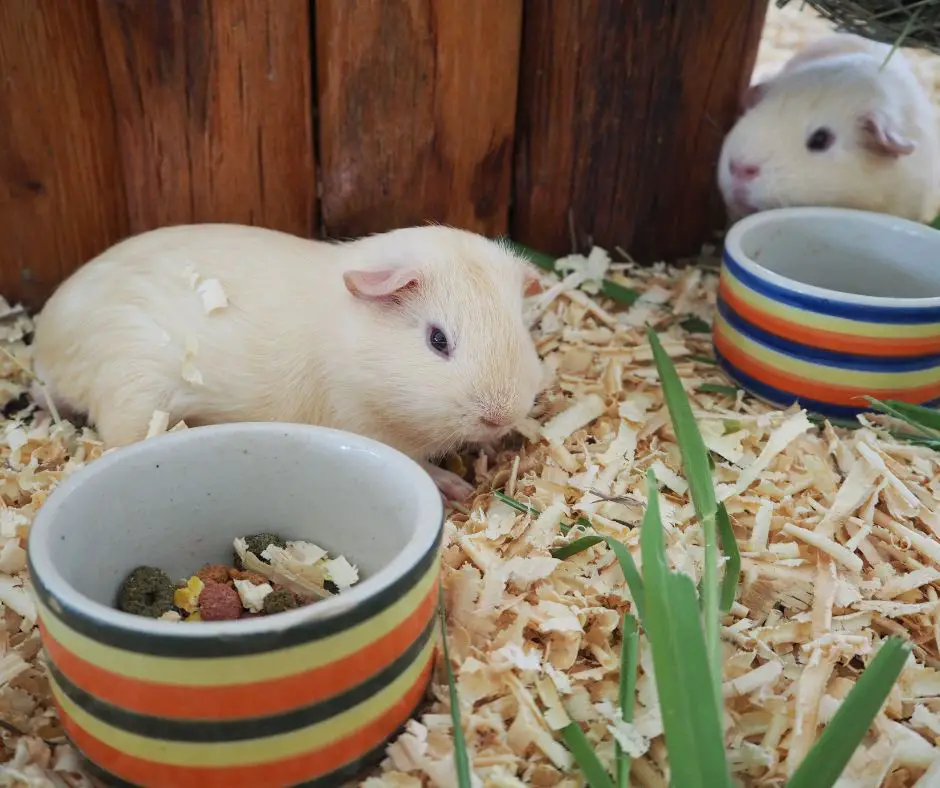
Keeping guinea pigs in a safe environment is crucial to their health, comfort, welfare, and well-being.
Guinea pigs are vulnerable to many diseases, with respiratory and bacterial infections being most prevalent. One of the successful approaches to minimizing such problems is by providing the correct substrate/bedding.
Many options of beddings exist in the market, but only a few are safe to use for guinea pigs. Our beloved friends here spend most of their time indoors, so they require excellent bedding.
Suitable bedding should be highly-absorbent, non-toxic, dust-free, soft and comfortable, cost-effective, and controls odor.
Below is a quick list of best bedding for guinea pigs; they have many advantages, and many caretakers commonly use them.
- Paper bedding: Soft, super absorbent, and good odor controller
- Fleece bedding: Soft, highly absorbent, dust-free, hypoallergenic, eco-friendly, and reusable
- Aspen bedding
Also read: 4 Best Guinea Pig Bedding
What Bedding Is Bad for Guinea Pigs?
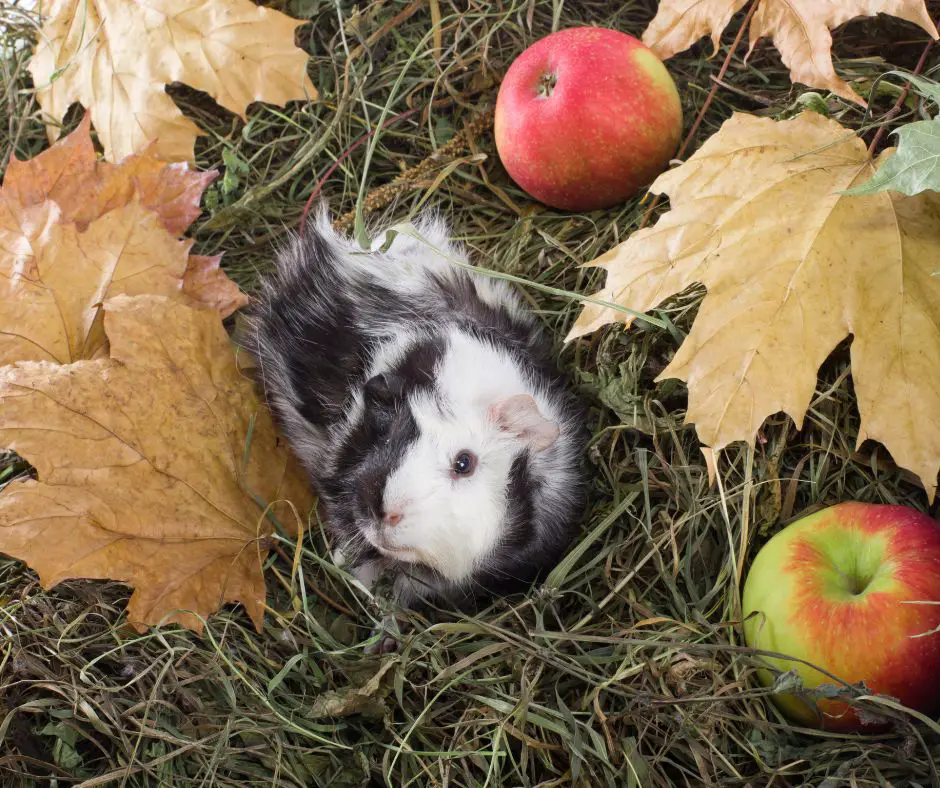
You shouldn’t go to the pet shop and buy just any bedding; the market is full of substrates that are improper for guinea pigs.
Remember, your furry friend depends on you to provide it with a safe home to live and thrive in. Try by all means to avoid beddings such as;
- Straw: Lack absorbent qualities, not cozy, and it’s stiff. Can injure your friend’s eyes, nose, feet, and ears.
- Cedar and pine bedding: The dust and phenol/aromatic oil from these beddings make guinea pigs sick.
- Clumping cat litter: The chemical giving this bedding its clumpiness is dangerous when ingested. It can kill your pig.
- Corn husks: are prone to mold and may cause intestinal blockage if your pig swallows them.
Summary
Guinea pig beddings/substrates require you to choose a good material for your little friend and one that’s safe to the environment.
You need a super absorbent brand to absorb urine and liquid waste and control odor from the cage. Some materials like cedar and pine are excellent absorbers, but they contain chemicals harmful to guinea pigs, hence not ideal beddings.
Straws are stiff and expose guinea pigs to injuries. Likewise, corn husks are not good substrates. Aspen beddings are excellent choice beddings that don’t pose health risks to guinea pigs.
